Photographs: Jayanta Dey/Reuters BS Bureau
The government has chosen the wrong way to control the current account deficit.
The government is moving forward with its various measures that it had promised to try and curtail India’s current account deficit, which had reached alarming proportions in recent quarters.
Finance Minister P Chidambaram told Parliament on Monday that he remained confident that the current account deficit for 2013-14 would be only 3.7 per cent of gross domestic product, although 2012-13 saw it as high as 4.8 per cent of GDP.
While figures released on Monday showing a sharp decline in the balance of trade will have given Mr Chidambaram some confidence in that assertion, it remains to be seen how import-hungry India can, in the absence of a pickup in industrial growth, manage to address its external weaknesses.
…
Curbing CAD? FM fails to take right steps
Image: Gold bangles are on display at the international jewellery fair.Photographs: Murad Sezer/Reuters
The measures Mr Chidambaram announced are not likely to fill anyone with confidence.
Raising the import duty on gold and silver to a hefty 10 per cent will likely take India back to the 1970s and 1980s, when gold smugglers ruled the Arabian Sea.
In addition, Mr Chidambaram told Parliament that he intended to further liberalise foreign capital inflows into India, in particular through “quasi-sovereign” bonds issued by large public sector financial institutions and incentivising more external commercial borrowings by both public and private companies.
…
Curbing CAD? FM fails to take right steps
Photographs: Reuters
Again, shades of past crises: a structural weakness in the external account, which should be dealt with by depreciation of the currency, is being financed instead with reversible capital flows.
Tariff rates on certain goods are also to be raised. This has been in the works for a while; earlier this month, this newspaper reported that the finance ministry had gone through a list of India’s top 400 import lines by value and shortlisted those “not used for any productive purpose, and intended for final consumption”.
…
Curbing CAD? FM fails to take right steps
Photographs: Reuters
A hit will, thus, fall on expensive white goods and consumer electronics. Yet all white goods put together are only 6.3 per cent of total imports by value; semi-precious stones are only four per cent of the country’s total import bill.
A marginal increase in their tariffs will only bring down consumption slightly, and hardly make a measurable impact on the size of the import bill.
Indeed, given that consumers of such goods are rarely among the most price-sensitive – those buying an Apple tablet are already willing to pay over three times the price of a competing tablet produced in India – the effect on the total import bill will be even smaller than it would otherwise have been.
…
Curbing CAD? FM fails to take right steps
Photographs: Reuters
Worse, this measure is even more likely to take India back to the era of import substitution in consumer goods that led to poor quality and uncompetitive industry.
As the difficulty in rolling back the post-crisis stimulus sops for industry showed, even “emergency” measures meant to be temporary persist much longer than they should.
And, in this case, there will be every incentive for domestic manufacturers to buy expensive inputs from abroad, and do minimal value addition domestically - a return to the “screwdriver assembly plants” of the 1980s.
…
Curbing CAD? FM fails to take right steps
Image: Foreign currency traders work inside a trading firm behind the signs of various world currencies, in Mumbai.Photographs: Vivek Prakash/Reuters
For import substitution to work and help grow native high-tech industry, it should be paired with easing the difficulty of doing business internally, which is not on the government’s agenda.
Even if such loopholes in tariffs are attempted to be closed, it will require excessive observation and interference by the relevant officials. Such tariffs would, therefore, be dangerous.
It would be far better to impose an across-the-board excise hike, which with the automatic, corresponding import duties could address both overheated demand and the fiscal deficit as well as be less distortionary.

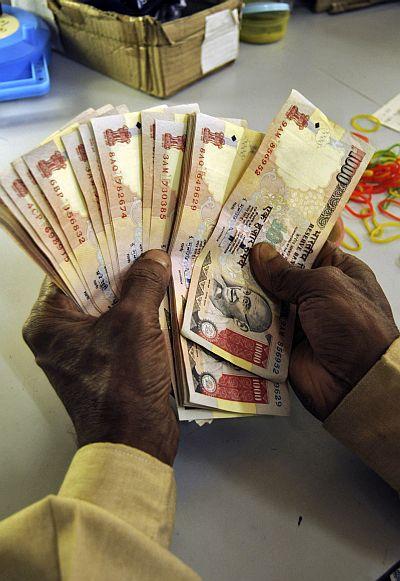

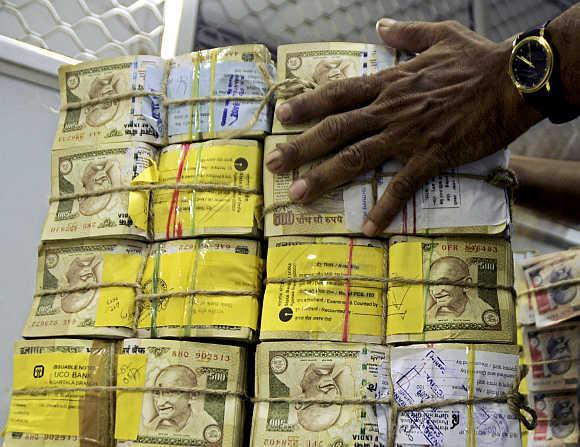
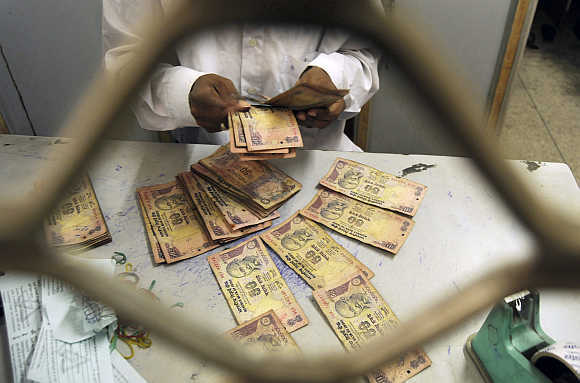
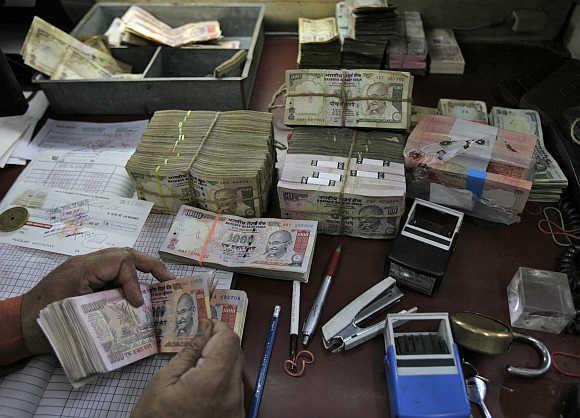
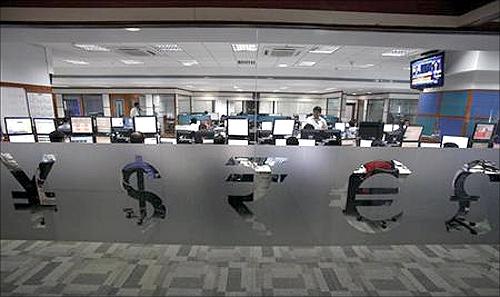

article